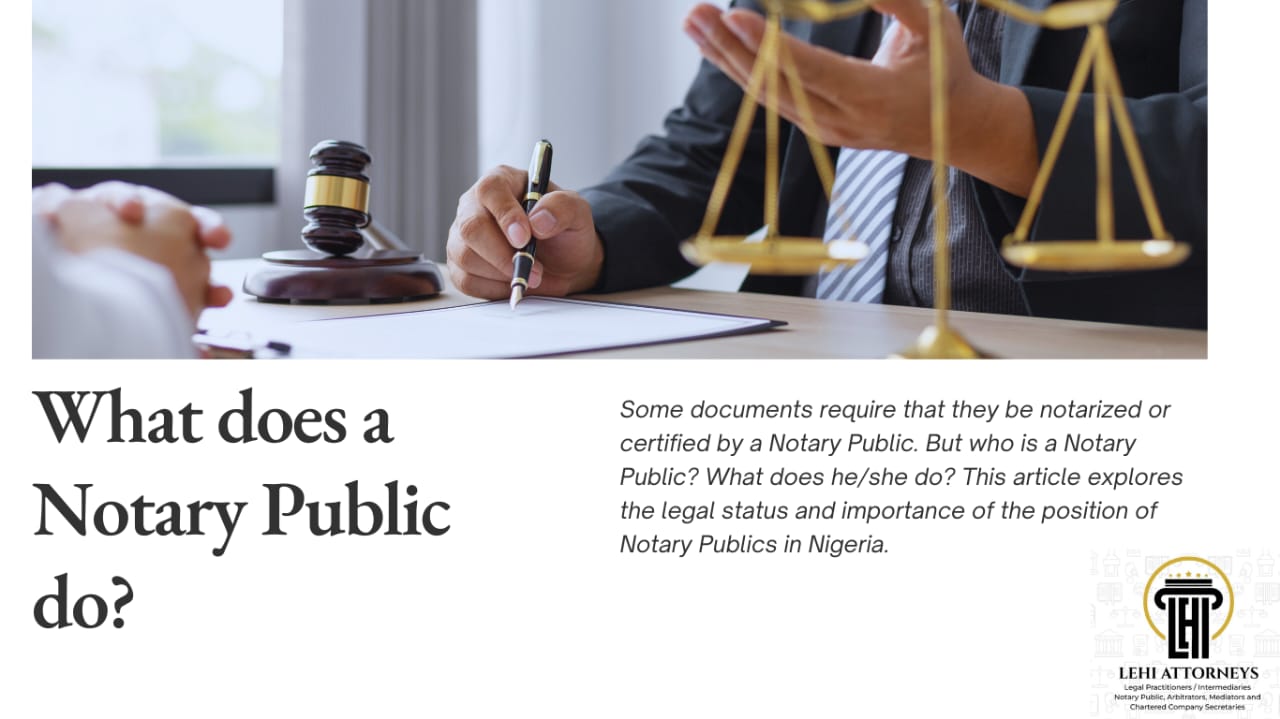By Babayemi Olaniyan Esq, Notary Public, Aciarb(UK), AICMC, ACIS, ABR
INTRODUCTION
An individual who has been granted permission by the Federal Government of Nigeria to notarize documents and carry out specific legal services, such as witnessing signatures on documents, verifying and authenticating documents, especially those intended for use in international transactions, legal proceedings, and business dealings, is known as a Notary Public. Typically, Notaries are lawyers. The Chief Justice of Nigeria may designate any suitable individual who practices law as a Notary Public in Nigeria in accordance with section 1 of the Notaries Public Act 2023. A Notary Public must be an attorney in good standing who practices law in Nigeria, according to the interpretation of the clause.
LAW GUIDING NOTARY PUBLIC
The law guiding Notary Public in Nigeria is the Notaries Public Act 2023 which repealed the Notaries Public Act, Cap. N141, Laws of the Federation of Nigeria, 2004. The law provides for the appointment of Notaries Public, their registration and to regulate the duty of the office of the Notary Public and make provisions for the performance of digital and remote notarizations of documents by Notaries Public in Nigeria and the recognition of digitally notarized documents.
In other words, this new Act which came into being in June 2023 recognized the place of digital notarization and electronic notarial acts. This can be seen in sections 5,6 and 8 of Notaries Public Act 2023.
FUNCTIONS AND RESPONSIBILITES OF A NOTARY PUBLIC
- Authentication of Documents: Notaries in Nigeria can authenticate various types of documents, including contracts, International passports, affidavits, deeds, and agreements. They verify the identity of the parties involved and confirm that the document is genuine.
- Administering Oaths and Affirmations: Notaries can administer oaths and affirmations, which are often required for affidavits and statutory declarations. This ensures that individuals making statements are doing so truthfully and under penalty of perjury.
- Certification of Copies: Notaries can certify copies of original documents as true copies. This is often necessary when submitting documents to government agencies, embassies, or other authorities.
- Witnessing Signatures: Notaries serve as impartial witnesses when individuals sign important legal documents. They confirm the identity of the signatories and ensure that they are signing willingly and knowingly.
- Preventing Fraud: Notaries help prevent fraud by verifying the identities of the parties involved and ensuring that documents are executed correctly.
- The Notaries also take acknowledgments of deeds and other conveyances. Perform digital notarization through electronic means.
- After performing notarial acts, Notaries provide notarial certificates or seals to attest to the authenticity and legality of the documents or transactions. In Nigeria, it is the seal that is mostly used by the Notary public officers.
Caveat:
The information above is solely for educational and information purposes and is not meant to serve as legal advice.
For more information contact Lehi Attorneys on
08134699398


